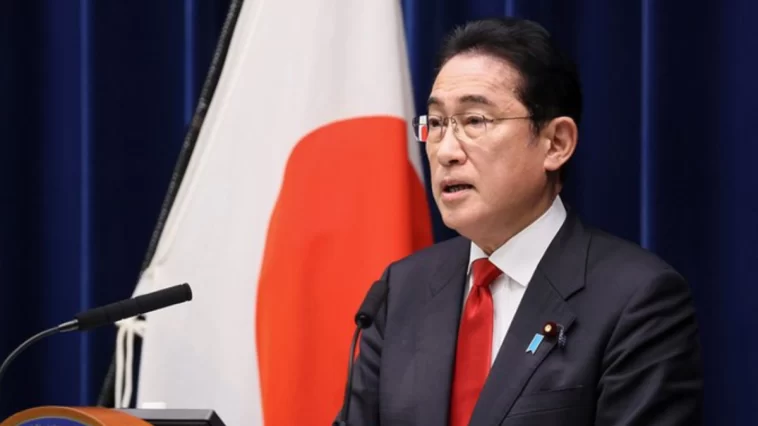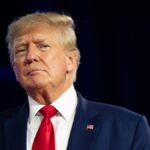Discussions between Japanese Prime Minister Fumio Kishida and Indian Prime Minister Narendra Modi centred on the role India and Japan can play when the world is “at a difficult historical crossroads.”
India and Japan discussed steps to strengthen cooperation in security, trade, and technology on Monday, as Japanese Prime Minister Fumio Kishida unveiled a new plan for a free and open Indo-Pacific that envisions India as a “indispensable partner” for preventing coercion and upholding the rule of law.
Prime Minister Narendra Modi and his visiting Japanese counterpart discussed the Ukraine crisis and the coordination between India’s G20 presidency and Japan’s G7 presidency. Both leaders acknowledged the significance of incorporating the perspectives of the Global South into the G7 and G20 proceedings.
The two parties signed an agreement on the fourth tranche of a 300 billion yen (18,800 crore) loan from the Japan International Cooperation Agency (JICA) for the Mumbai-Ahmedabad high-speed rail. Modi stated during a joint media interaction that both parties are “making rapid progress” on the project.
Modi stated that strengthening the India-Japan alliance, which is based on respect for the rule of law, promotes peace and stability in the Indo-Pacific. He added that the two leaders reviewed the development of bilateral relations and discussed collaboration on defence equipment and technology, trade, health, and digital partnership.
“We had a productive discussion about the significance of dependable supply channels for semiconductors and other critical technologies. We set a target of five trillion yen in Japanese investment in India over the next five years…Modi stated in Hindi that he was pleased with the progress made in this regard.
Kishida stated that his discussions with Modi centred on the role India and Japan can play when the world is “at a difficult historical crossroads.” The G7 summit that Japan will host in May will focus on upholding international order based on the rule of law, and the two leaders agreed on the need for close cooperation to ensure the success of the G7 and G20 summits, he added. Modi also accepted Kishida’s invitation for India to participate as a guest at the G7 Summit.
The threat posed by China’s aggressive actions was a topic of discussion, despite the fact that neither party openly acknowledged it. Asked at a media briefing if this topic was discussed, foreign secretary Vinay Kwatra responded, “They [leaders] spoke about the challenges we face in the region and how India, Japan, and other like-minded countries can work together to address these challenges and cooperate in the broader Indo-Pacific.”
Kishida’s visit was highlighted by his Sapru House Lecture, in which he outlined Japan’s “New plan for a free and open Indo-Pacific – Together with India as an indispensable partner.” The address was a continuation of the historic speech given by the late former prime minister Shinzo Abe in the Indian Parliament in 2007, in which he spoke of India and Japan fostering the union of the Indian and Pacific Oceans in order to guarantee freedom and prosperity.
Kishida outlined four new pillars for cooperation for a Free and Open Indo-Pacific, or FOIP: principles for peace and norms for prosperity, addressing challenges in an Indo-Pacific manner, multi-layered connectivity, and extending efforts for the safe and secure use of the air to the sea.
He outlined measures for expanding cooperation in the areas of food security, climate change, global health, and cyber security. In the context of connectivity, Kishida stated that Japan will promote with India and Bangladesh the “Bay of Bengal-Northeast India industrial value chain concept” for the development of the entire region.
Noriyuki Shikata, cabinet secretary for public affairs in Japan’s PMO, stated that Tokyo will examine projects to strengthen connectivity between the economies of India and Bangladesh and work to attract more Japanese companies to invest in the region. In the current environment, it is “difficult to promote” cooperation with Myanmar, whereas Japan is considering an economic partnership agreement with Bangladesh, he said.
Without directly mentioning China, Kishida emphasised in his speech that Japan’s new plan is aimed at opposing the use of force to unilaterally alter the status quo, defending the rule of law, countering economic coercion, and establishing connectivity that is not dependent on a single nation.
Kishida portrayed India as playing a central role in almost every aspect of this plan, which he referred to as “our FOIP.”
He stated, “Our FOIP must be conducted in collaboration with multiple nations and stakeholders. Japan will increase cooperation with the United States, Australia, [South Korea], Canada, Europe, and other nations. India is obviously indispensable.”
In both his speech and his discussions with Modi, Kishida condemned the Russian invasion of Ukraine. “I reiterate that Japan condemns Russia’s aggression against Ukraine in the strongest possible terms and will never recognise it. “Prime Minister Modi also told President Putin that the current era is not one of war,” he stated in his speech.
Shikata stated that Kishida presented his views on the Ukraine crisis in a “direct” manner and that India and Japan should not accept unilateral changes to the status quo anywhere, including Asia. Shikata stated that the two leaders “agreed on the importance of maintaining and strengthening the international order based on the rule of law” and their shared responsibilities in this regard within the G7 and G20.
Also read this:Russians and Ukrainians may lose visa-on-arrival in Bali. Why?
Additionally, Kishida acknowledged “considerable disparities in the attitudes of various nations towards Russia’s aggression.” Japan must engage with the Global South to determine “where we can find common ground,” according to Shikata.




